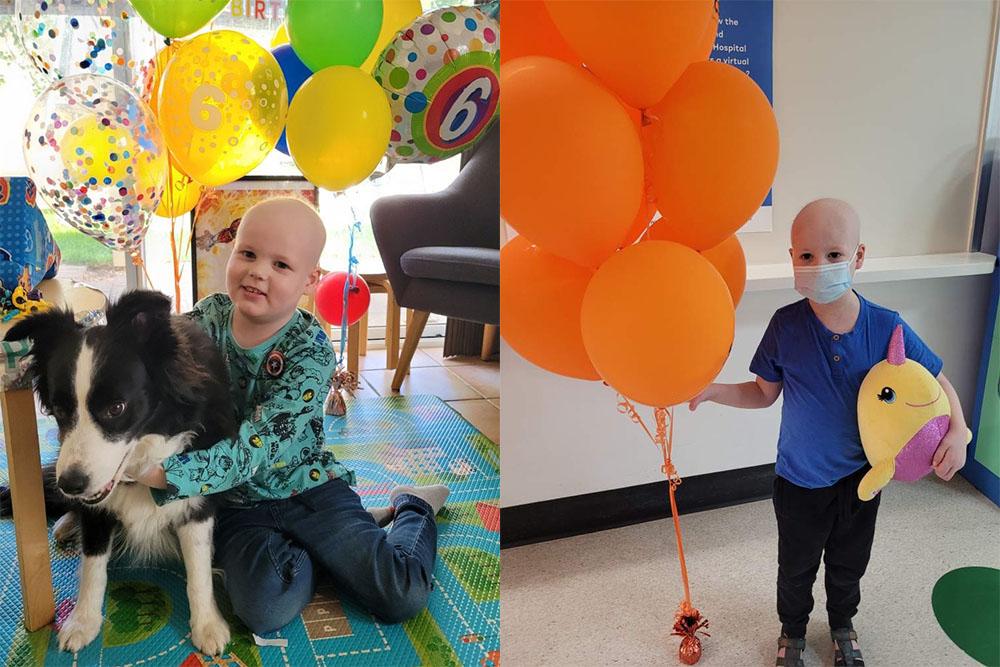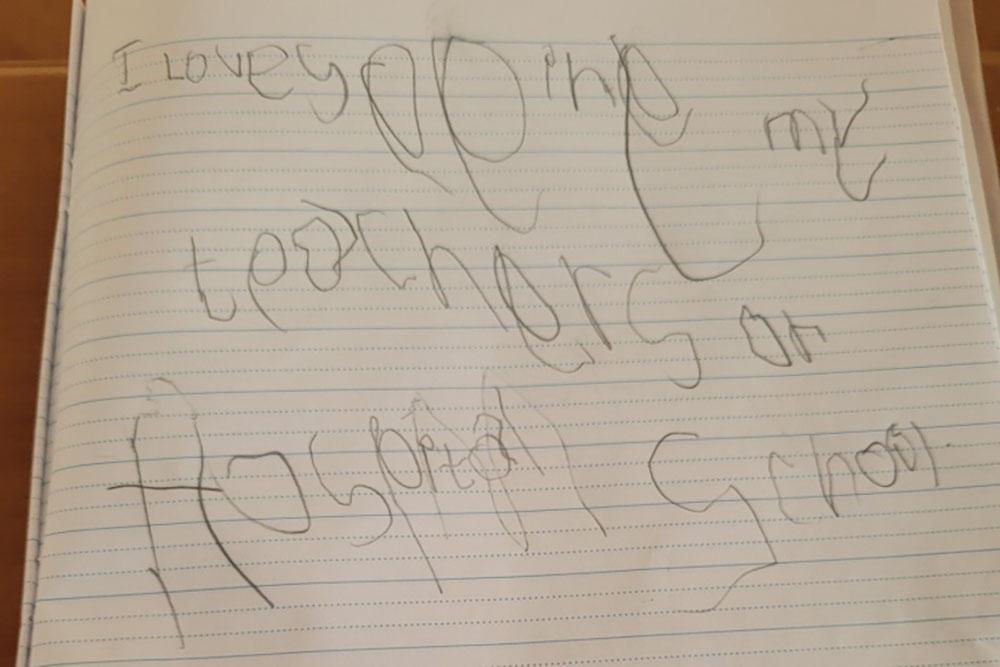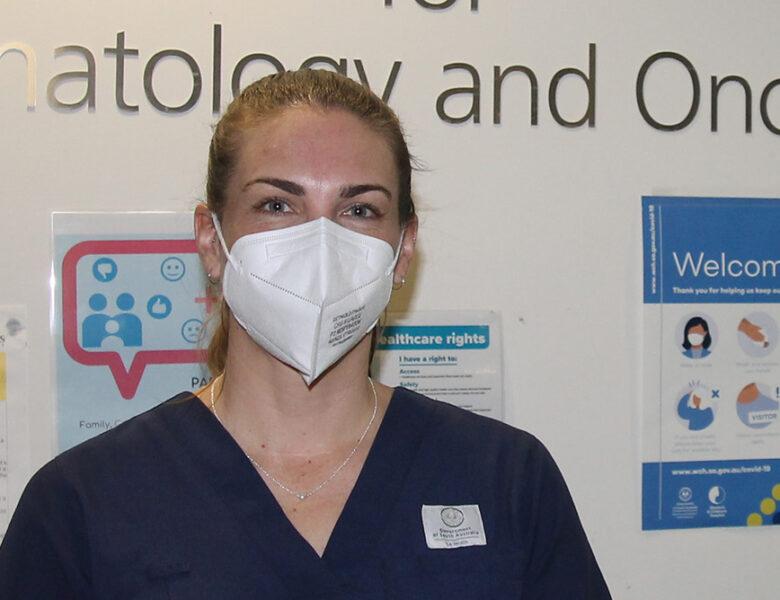Oncology School Liaison Nurse Program
Just after settling into his first year of school, Archer was diagnosed with acute lymphoblastic leukaemia – a type of cancer that affects the blood and bone marrow.
“He was quite well so it was a shock,” his mum, Jacquelyn, says.
Archer had a rash that kept coming and going, and his GP ordered some blood tests to help with what they thought would be an allergy diagnosis. On a Sunday afternoon, Jacquelyn received a call from the GP saying they needed to come back in first thing the following morning, and that was when they found out there were some big anomalies in Archer’s blood count. He was referred to the Women’s and Children’s Hospital Michael Rice Centre for further investigation and then treatment.
“In the space of a week we went from normal family life, Archer in school in reception and just getting settled into that as a routine, and then it was a world upside down moment in terms of finding out that he had leukemia,” Jacquelyn says.
Each year in South Australia, approximately 70 school-aged children are diagnosed or relapse with cancer or are treated for chronic haematological disorders. These kids often have to spend long periods away from their school and friends while they undergo treatment.

Archer and his pet dog, Zelda.
Back to school with Archer
During his treatment at the Hospital, Archer had to spend a considerable amount of time away from his own school, but attended Hospital School SA and had lots of support from the wonderful teachers there to continue his learning.
Now, six-year-old Archer is now transitioning back to his school with the help of the School Liaison Nurse Program run by the Michael Rice Centre and Hospital School SA, with funding support from the WCH Foundation.
The School Liaison Nurse is an experienced oncology clinical nurse who works with a patient’s school to make their transition back as seamless as possible. A few sessions have been run with the teachers at Archer’s school to help educate them on his situation, and Jacquelyn says everyone involved in the program has been brilliant.
“Archer has a port embedded in his body under his skin and that’s where his treatment is delivered. At a session, the liaison actually bought one in and said to the teachers, ‘This is what it looks like inside his body.’ The teachers could hold it and look at it and that was a really cool thing for them to know what it is and what it actually looks like,” Jacquelyn says.
“It was a really good opportunity to go through some of the medical information and how that will impact Archer’s education for the short term, but also the longer-term considerations as well from a chemotherapy point of view.”
“The liaison read through a very detailed plan of Archer’s treatment. She was able to tell the teachers quite a lot of detail so that they understood at what point he would be able to come back to school. It was a really thorough session.”
“I just felt so supported. They were all working together, they all complement each other, and the teachers know who to go to if they have further questions. It really took a bit of weight off my shoulders knowing that everybody was on the same page.”

Archer practising his literacy with a lovely note to Hospital School SA (reads: I love seeing my teachers at Hospital School).
Oncology School Liaison Nurse Program
Renae Hogarth (pictured in banner) is the current School Liaison Nurse at the Women’s and Children’s Hospital. She coordinates the program and acts as a conduit between hospital and school for families, advocating for patient-centred care.
The School Liaison Nurse Program includes oncology patients from kindergarten, right through to year 12, and is now extending to support patients with sickle cell disease and working towards including patients with thalassaemia as well.
Thanks to our corporate partner, Amazon, we are able to help fund this amazing program at the Hospital helping kids get back to school.
Back to all news

